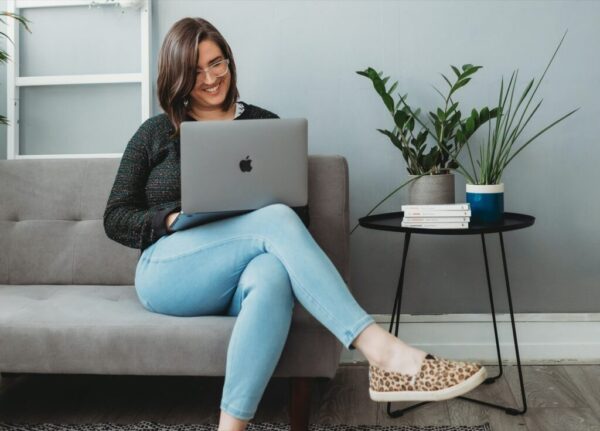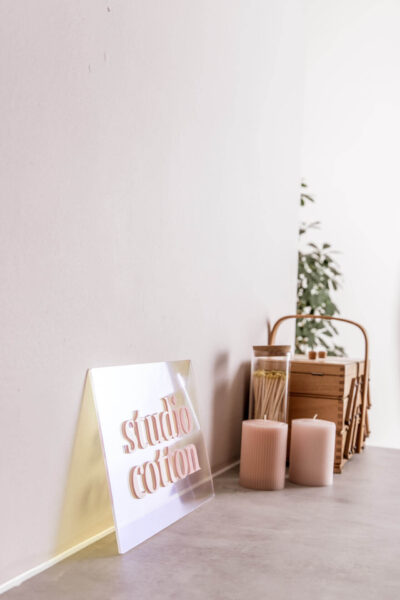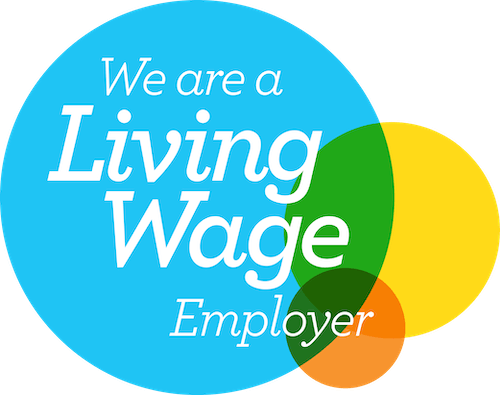Who doesn’t like a little peek under the metaphorical hood of a small business? Well, I ruddy do. I’m going to start this article on the three best investments I made in my small business with a very lil detour into one key ingredient that makes a valuable business blog: sharing a unique point of view.
A blog post is at it’s most useful when only you could have written it; voicing your opinions, your stories and your expertise.
So why this detour? Because I don’t often dive too deeply into my personal experiences for our blog. Sure, every article is dappled with my daft tone of voice, tenuous tangents, and signature segues, but, apart from 5 things to scrimp on (and 5 to splurge on) when you’re starting a small creative business, I don’t often write about my life at Studio Cotton.
Now to seamlessly segue back on subject. I wanted to share the three best investments I made in Studio Cotton, not to instruct you on the best way of running your business (because believe me, I have done very little the ‘right’ way) but to give you a little insight into my small business experience, and I hope you find that valuable.
Investing time, money or creativity?
I often refer to the big three resources of time, money, and creativity, as the most important currencies for a small business. Every business has a different quantities of each currency, which limits when and where we can spend our effort to generate that positive return on investment (ROI) needed to survive and thrive.
However, for the three best investments I made in my small business I’ll be focusing on cold, hard cash. It’s a little dive into the areas of Studio Cotton where I invested sterling, dollars and, – wait, no, just sterling and dollars – and saw the largest return in terms of financial reward, business growth, and professional success.
And that’s why most marketing is missing
My small business, Studio Cotton, is a marketing agency. This means that most of our marketing is free because it costs (wo)man hours, instead of money, which according to my own criteria for this post is excluded.
I am definitely not saying that marketing will not have a positive ROI for the average business. But, because we essentially have an unlimited marketing budget, it wouldn’t be fair to count it here.
1. Dubsado; our small business management system
Heads up, I’m gonna saturate this section with affiliate links*. If you use one of the links in this blog to visit the Dubsado website, and subsequently sign up, we get a lil kickback (and you get a lil discount).
I am about 4 years and 3 months in to running Studio Cotton. For the first 2.5 years, the business was basically just me, and it felt like my life was consumed with just keeping on top of my email inbox.
As well as delivering projects for us and our clients, I was in charge of generating new business, creating and collecting creative briefs, keeping on top of the logins and assets needed to deliver websites, bookkeeping and invoicing, legal pish, scheduling, travel, meetings, blah blah blah ahhhhhhh help HELP help me please please please.
Now I am 100% sure most small business owners reading this can relate to that feeling. Every working day was too short, my to-do list was too long, and Aime was growing too tired of treading too much water.
And then I discovered Dubsado.
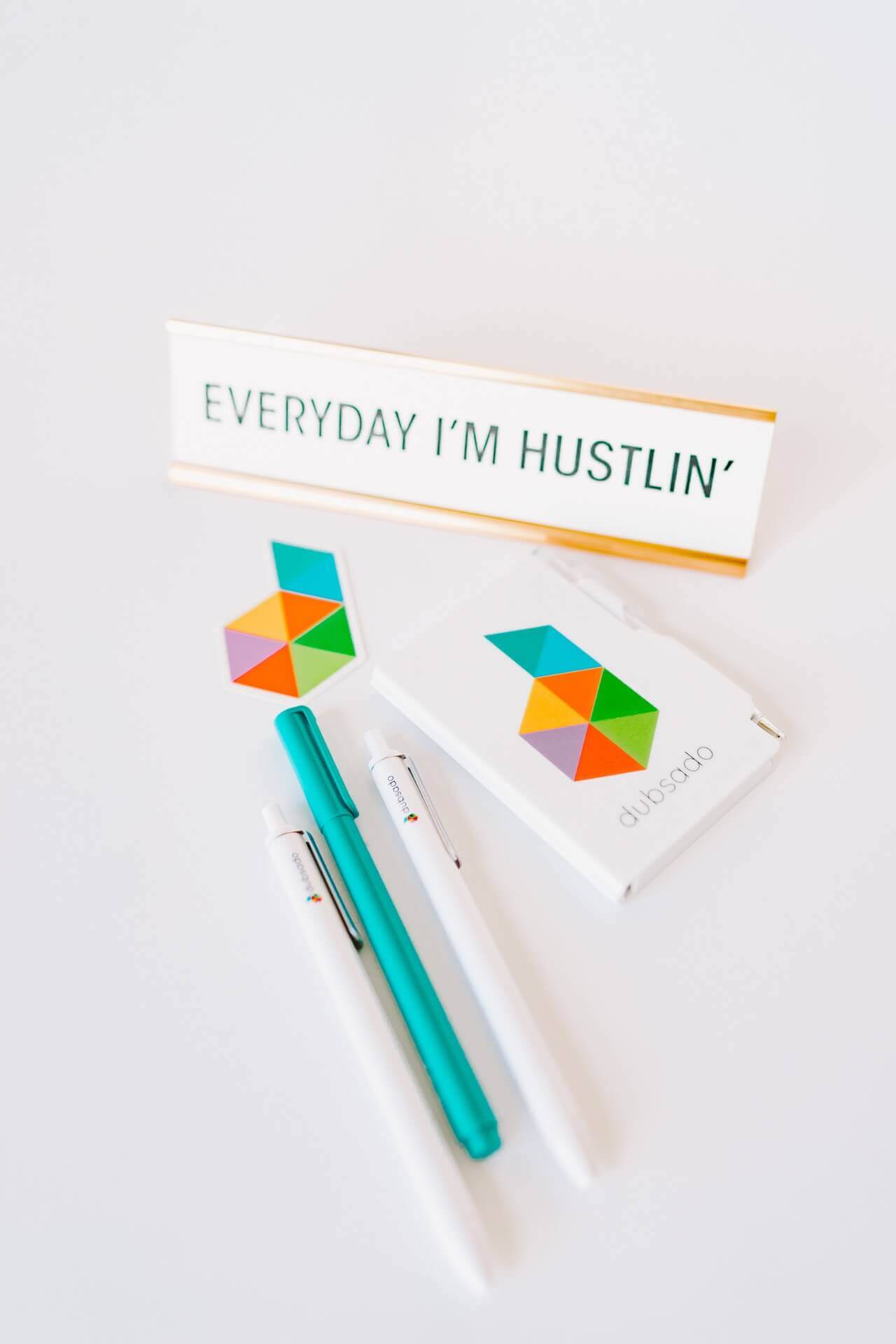
Through personal brand photographer Sophie Careful, I met creative business expert Nesha Woolery; and as I meandered through Nesha’s awesome blog, lightbulb after lightbulb started flashing.
Nesha specialises in business automation and organisation, the process of letting defined processes and handy software manage as much of your day-to-day as possible, so that you can spend your time actually doing the work.
It was at this point that I got a little embarrassed – before self-employment I’d been responsible for processes and efficiencies at many different workplaces – but had totally failed to implement any of my own expertise for Studio Cotton. Aime, you plonker.
Back to Dubsado. Dubsado is the best. Dubsado is so dang good, that pretty much everyone who uses it develops an almost cult-level of love for the program (see the Dubsado Community on Facebook for a whole lotta love).
Dubsado allows us to automate the vast majority of the Studio Cotton admin; including handling new business, responding to common enquiries, booking meetings, collecting briefs, onboarding, contracts, invoicing and more. For a website design & development project, I used to spend about 4-5 hours before we even started pushing pixels. Now it’s about 2 hours, and that includes an extra 45 minute meeting with the client.
If you run a business that involves creating anything custom or to-spec, I highly highly highly recommend Dubsado. Without it, Studio Cotton would still be just me, struggling to stay afloat both mentally and financially.
At the time of writing, Dubsado pricing starts at $35 per month/ $350 per year (~£28 / £280), I’d say it saves Studio Cotton about 15 hours of admin each month, which would be billed at just under £1,000.
There is a free plan which anyone can use for up to three clients, for any amount of time. We invest an extra $25 per month for 4-10 users, to accommodate our team of ~7.
2. A dedicated studio space
As I type this on 20th July 2020, it’s been just over four months since we temporarily closed the doors to our studio in Bristol’s Old City to help minimise the spread of COVID-19. The Studio Cotton team is still working from home, and I’ve swapped my lovely desk at 48 Corn Street for half a dining table in Bedminster.
I hate working from home.
I suffer from a super short attention span. I am incredibly easily distracted, and really struggle to focus on a single task for any significant period of time, unless that task is completely unnecessary – like spending hours learning everything I can about the history of Saturday Night Live and each cast member, or finding out how to build a credenza (and learning what the fluff a credenza is), or like right now – learning French. Thanks Duolingo**.
When I work from home, there are about 10,000 things I can do that are not The Thing Aime is Supposed to be Doing. Thing is, I don’t even do those 10,000 things, more often than not, I end up doing Nothing Useful At All. Now my husband (and Studio Cotton co-director) Alex would say that I am being super hard on myself here, and I am. But it’s a fact that working from home has a massive negative impact on my productivity.
I moved my business from our old basement flat to a coworking space within 6 months of starting Studio Cotton, and it immediately increased my output. It’s like there’s a switch in my head that turns off procrastination-mode and turns on work-mode when I leave BS3 and cycle in to BS1 for the office.
I swiftly moved from the coworking space to a small studio, and then when we were able to scale the business (thanks in large part to Dubsado), we took on our current 750sqft office space.
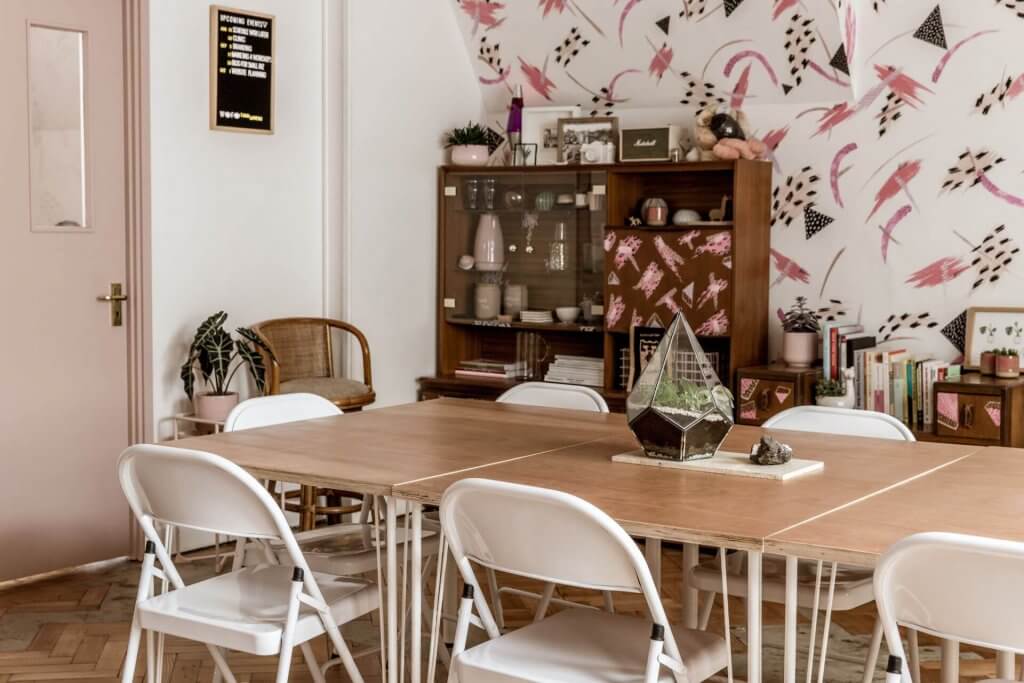
There have been other significant commercial benefits to having a physical space as well; like the ability to run workshops from our own space, provide space for our growing team, gain PR features for our unique decor, and you can’t put a price on the sense of pride I feel when I walk through the doors of our wonderful workspace.
The cost of office space is hard to quantify/qualify as it varies so much depending on facilities and location. Desk space in coworking facilities in Bristol starts from around £150 – £250 per month, with studios around £300 – £900.
ROI is even tougher to evaluate as Studio Cotton has transformed so much since taking on a physical space, but I am happy to say my personal productivity as much as doubles, so in theory I can complete twice as much client work.
3. Finding my Jodie
I gush a lot about our business manager Jodie. She is just a phenomenal human with a kind heart and a bangin’ brain.
I think most entrepreneurs have an idea of how they would like to grow their business – which roles they would fill first, and which tasks they would first outsource. I certainly did, but I didn’t necessarily think about the individual who would fulfil the work. And I was dang lucky that I found Jodie.
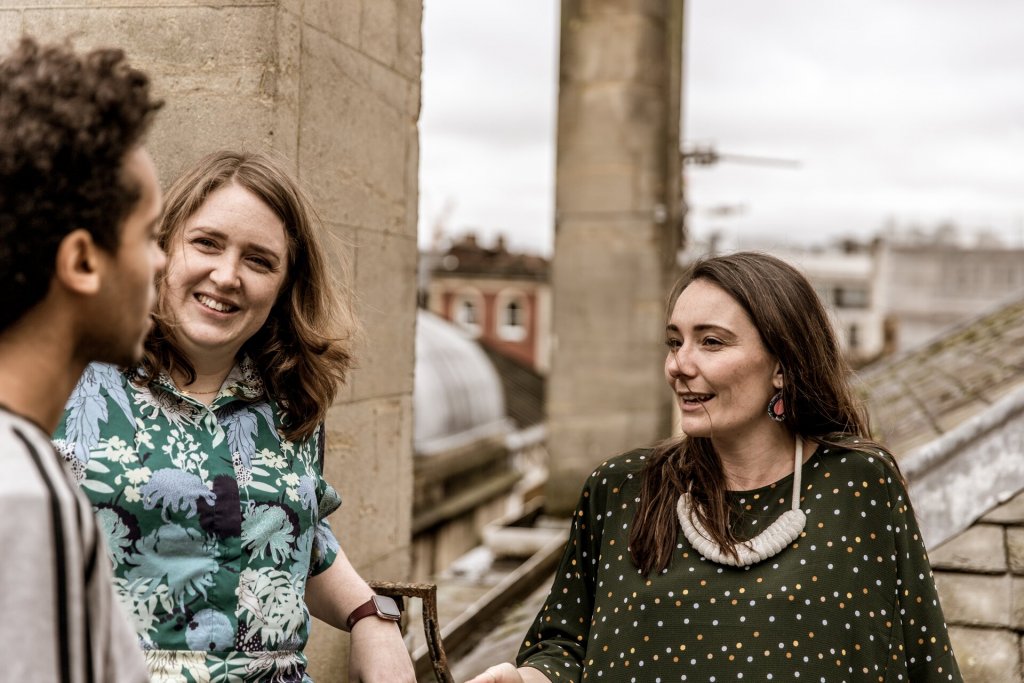
It turns out that the best decision I made, was in finding someone whose personality and working style provided a perfect balance to my own. Now I’m not talking about opposites attracting, because Jodie and I agree on a buttload of topics – from life values through to taste in skirts and also where to buy the best coffee in Bristol (it’s Ka:Fei).
But our differences make Jodie my missing ingredient. I mentioned before that I struggle with focus, organisation and completing tasks – Jodie excels at all three. I also mentioned that I am super hard on myself, and Jodie is the literal queen of authentic, thoughtful pep talks.
Pretty much all of my weaknesses are balanced my Jodie’s strengths, and as a pair we plug a lot of holes in the small business colander that is Studio Cotton. Jodie not only brought with her a plethora of skills that we desperately needed, but she is also comfortable identifying ways we can improve, and then implementing those changes.
Jodie helped me to develop Studio Cotton into a small business machine that now engages a small team of freelancers on a much higher volume of client projects. We now execute more projects, in less time, and have a better idea of our commerciality, all thanks to one wonderful Jodie.
Now I’m not saying you need my Jodie (because if you take her, I will cry), but when you’re looking to bring other humans in to your business, I recommend finding those who bring personal strengths, as well as professional ones.
In terms of costs, well – you’re just going to have to trust me that this one has a bangin’ ROI.
This worked for my small business, now go find what works for you
I hope you found the peek behind my business curtain helpful. I just want to take one last opportunity to remind you that this post is hella subjective, and what worked for me might not be the best solution for every small creative business.
Still, I would check out Dubsado. It really is ace.
*An affiliate link contains a short code, in this instance, it is the ?c=cotton of https://www.dubsado.com/?c=cotton which allows the website owner to see where their traffic is coming from, and reward either the referrer and/or the referred person with discounts, money back, or perks like reduced memberships.
**No really, thank you, you provide an exceptional service for free and I am very grateful. Je m’appelle Aime, j’habite dans the sud-ouest de l’Angleterre, et je n’aime pas le chocolat. I am still struggling with getting le miel and le ciel the right way around though.


